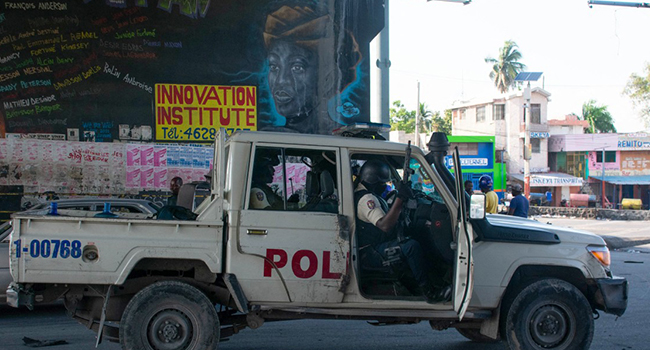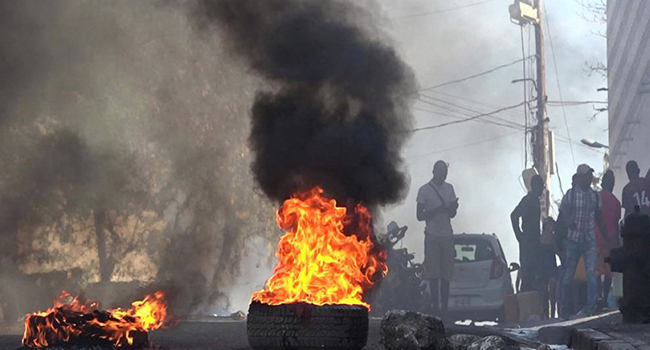Protesters took to the streets in Spain Thursday after five men were acquitted of gang raping a woman at Pamplona’s bull-running festival but were sentenced to nine years’ jail for the lesser offence of sexual abuse.
The verdicts sparked protests outside the Pamplona courthouse in northern Spain, with people shouting, “it’s not sexual abuse, it’s rape”.
Some donned red gloves in protest while others shook their fists at the building or held up signs reading: “We believe you, sister”, images broadcast on Spanish TV showed.
The men, aged 27 to 29, had been accused of raping the woman, then aged 18, at the entrance to an apartment building in Pamplona on July 7, 2016, at the start of the week-long San Fermin festival, which draws tens of thousands of visitors.
The five, who are all from the southern city of Seville, allegedly filmed the incident with their smartphones and then bragged about it on a WhatsApp messaging group where they referred to themselves as “La Manada,” or “The Pack” in English.
Judges acquitted them of sexual assault, which includes rape, but found them guilty of “sexual abuse”, which in Spain means that there was no “violence or intimidation” in the case.
‘Very angry’
Reacting to the verdicts, Justice Minister Rafael Catala said it was time to “reflect on a reform” of Spain’s current laws against sexual assault, which date from 1995.
Spain’s Deputy Prime Minister Soraya Saenz de Santamaria said that while the judge’s sentences must be respected, the authorities needed to analyse what had happened “to avoid such behaviour happening again in this country”.
Protests against the verdicts were also held in cities across Spain on Thursday evening.
In Barcelona thousands packed Sant Jaume square in front of the city hall which was decked out with a purple ribbon in protest.
“If you resist they kill you, if you don’t resist you consent. What to do?” read one sign.
Maria Moreno, a 19-year-old high school student, said she was “very outraged, very angry”.
“It’s as if violence is only hitting. Restricting a woman’s freedom and having sexual intercourse without her consent is already violence,” she told AFP at the rally.
Similar rallies were held in Madrid, where hundreds of people gathered outside the justice ministry, as well as in Alicante, Zaragoza, Santander and Seville, the home town of the five men.
Appeal
Prosecutors had argued during the trial last autumn there was “serious intimidation and it prevented resistance or flight”.
They had asked for each to be jailed for 22 years and 10 months.
One of the accused is a Guardia Civil policeman — currently suspended — and another is a former soldier. Several are “ultras” who support FC Sevilla.
Apart from the jail sentence, the court ruled they would have to pay the victim 50,000 euros ($61,000) in compensation.
The five men have been in pre-trial custody since they were arrested in July 2016 shortly after the incident.
Lawyers for the woman and attorneys for four of the men said they would appeal.
‘I believe you’
Defence lawyers had argued the victim agreed to the sexual encounter and would only acknowledge the gang had stolen the mobile of the girl, who was left half naked in the building entrance.
But prosecutors pointed out that the victim had met the men just seven minutes before the incident and did not even know their names.
The case sparked criticism from women’s groups after the court initially agreed to admit as evidence a private detective’s report into the alleged victim’s behaviour afterwards, including her presence at a party.
Spaniards adopted the slogan “I believe you” on their social media profiles in support of the woman and street protests were held in Madrid and other Spanish cities in November.
AFP





